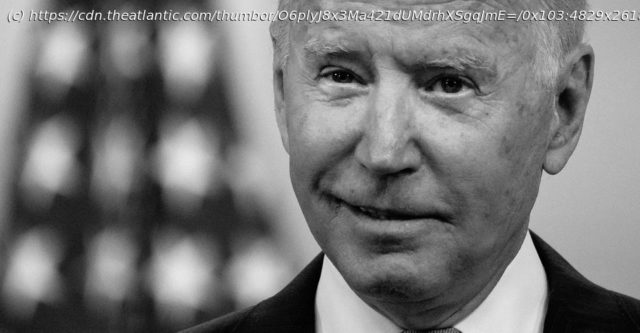The president’s approval ratings keep falling. The question is why.
About the author: David A. Graham is a staff writer at The Atlantic. The biggest mystery in American politics right now—and perhaps the most consequential one—is how Joe Biden became so unpopular. Biden began his presidency moderately popular: At the start, Quinnipiac University’s polling found that 53 percent of Americans approved of him and 36 percent did not. Today’s numbers are the mirror image: In a Quinnipiac poll released yesterday,36 percent approve, while 53 percent disapprove. FiveThirtyEight ’s average of polls finds him doing slightly better—42.8 to 51.7—but still in a consistent slide since the end of July. The numbers are very polarized, but Republicans have always disapproved strongly of Biden; the big difference here is erosion among Democrats and independents. This reversal could have wide-ranging effects. Biden still hopes to pass a massive social-spending program, for which he needs uniform Democratic support. Depending on their understanding of the causes for the slide, members of Congress might defect. Biden’s unpopularity may already have cost Democrats the Virginia governorship and nearly sunk Governor Phil Murphy of New Jersey too. If Biden is this unpopular in a year, congressional Democrats will be entirely swamped in the midterms. But although the effects are evident, the causes are not. Even in today’s era of heavily quantified politics, some enigmas remain. Here are a few of the theories in play for why the president keeps losing ground, as well as their flaws. Simple Gravity Familiarity, like politics, breeds contempt. Combine the two and you get a toxic result. Although nearly every president (Donald Trump is a notable exception) takes office with good feelings and some approval from the public, they also almost always lose it soon. Campaign promises hit the rough reality of governance, voters forget the happy vibes of the campaign, and they sour on the guy they elected. In recent times, Americans tend to just hate whoever’s in power. If you think Biden’s numbers are bad, look at how Congress is doing, according to Quinnipiac: Democrats are at 31–59, and Republicans are at an even worse 25–62. This theory is undoubtedly true, but it doesn’t seem to account for all the facets of the Biden slide. In particular, it doesn’t explain what happened in August, when Biden’s numbers flipped and his approval went underwater. Afghanistan That inversion happened just as the Biden administration was fumbling the withdrawal from Afghanistan. At the time, many tempered observers ( including me) guessed that although the withdrawal might be a tactical or moral catastrophe, it would not be a political one—or at least not an enduring political one. Big events like the withdrawal, which drew extensive media coverage, can temporarily depress a president’s standing, but this one seemed unlikely to endure.






